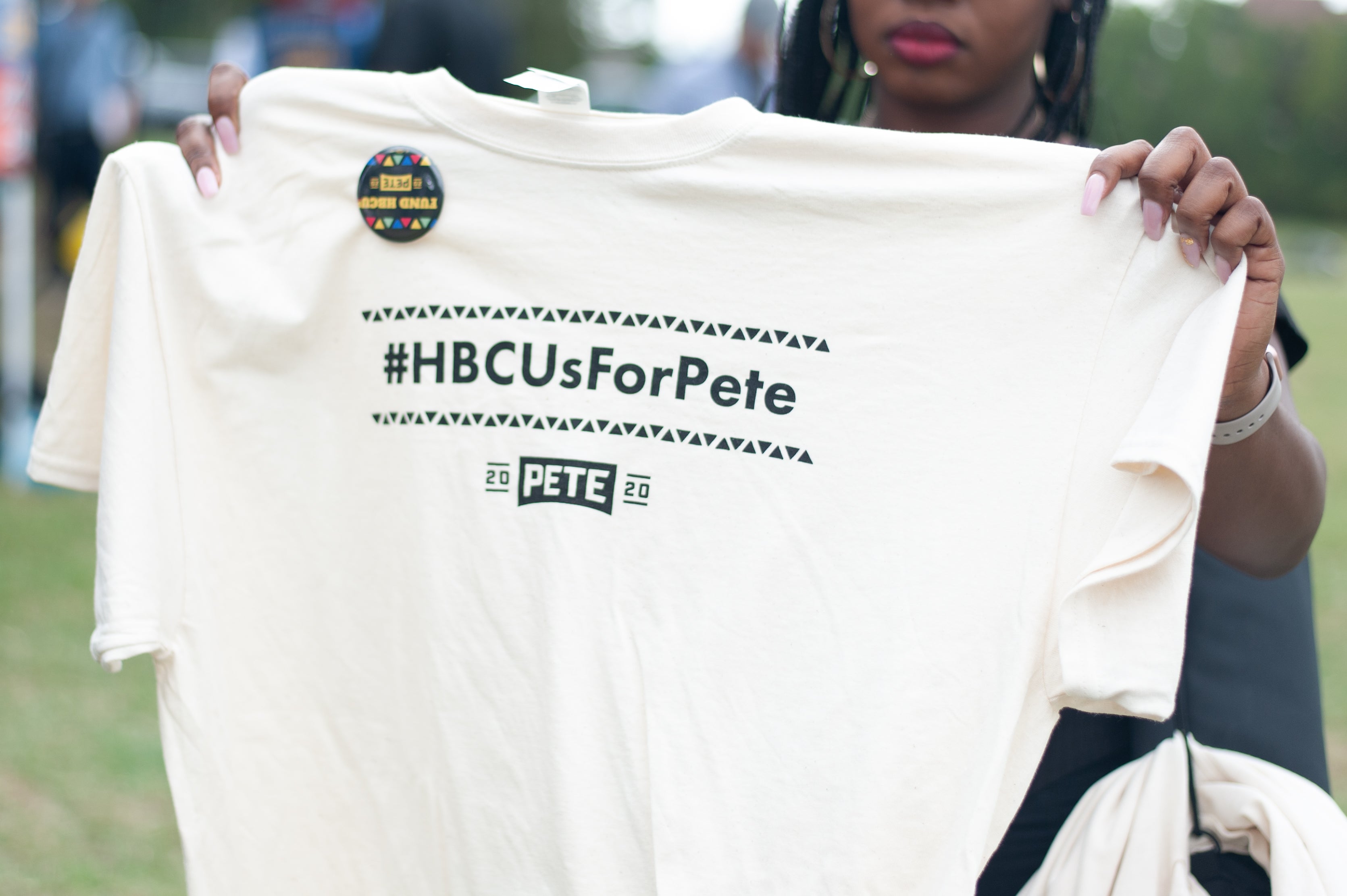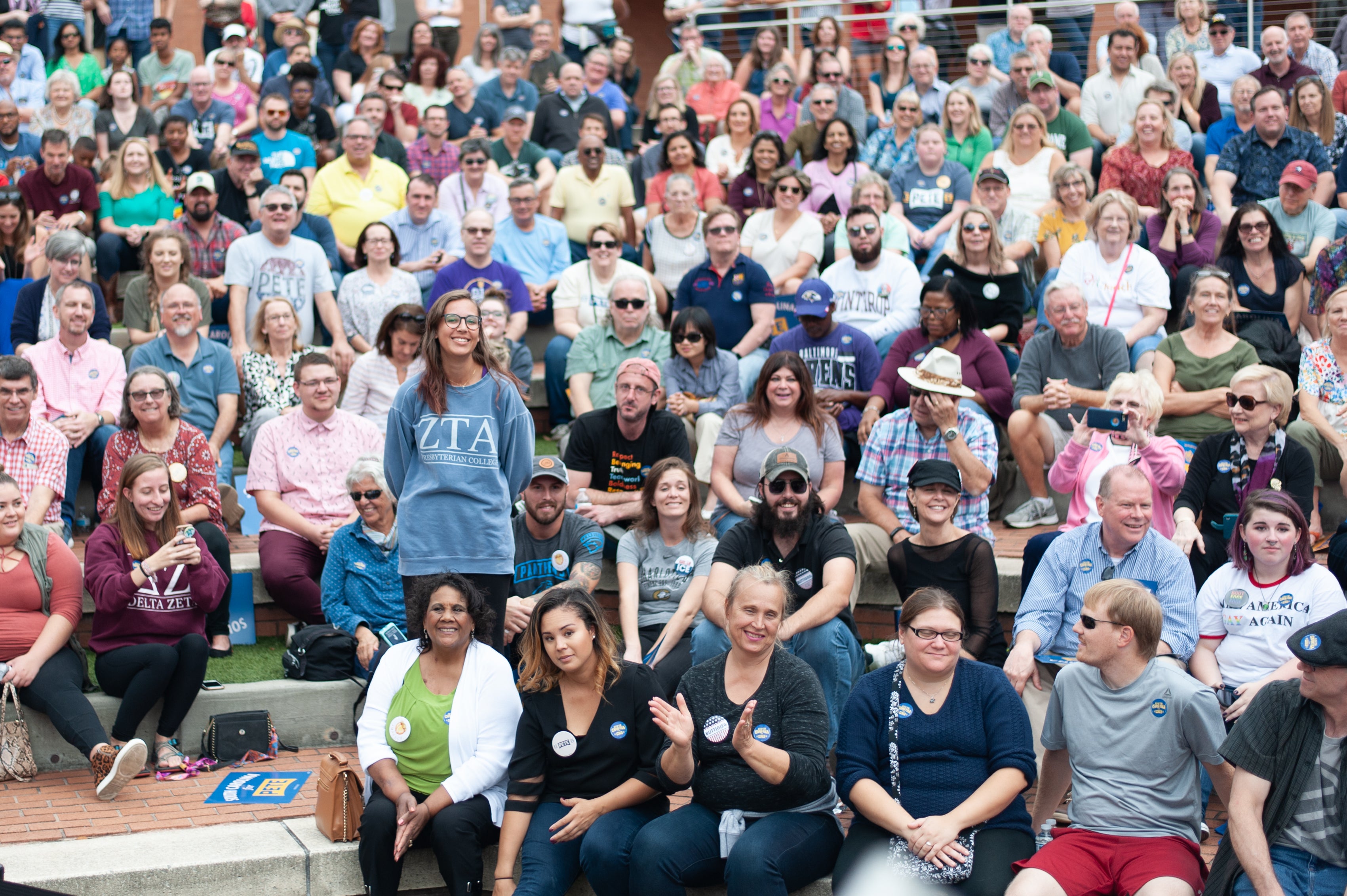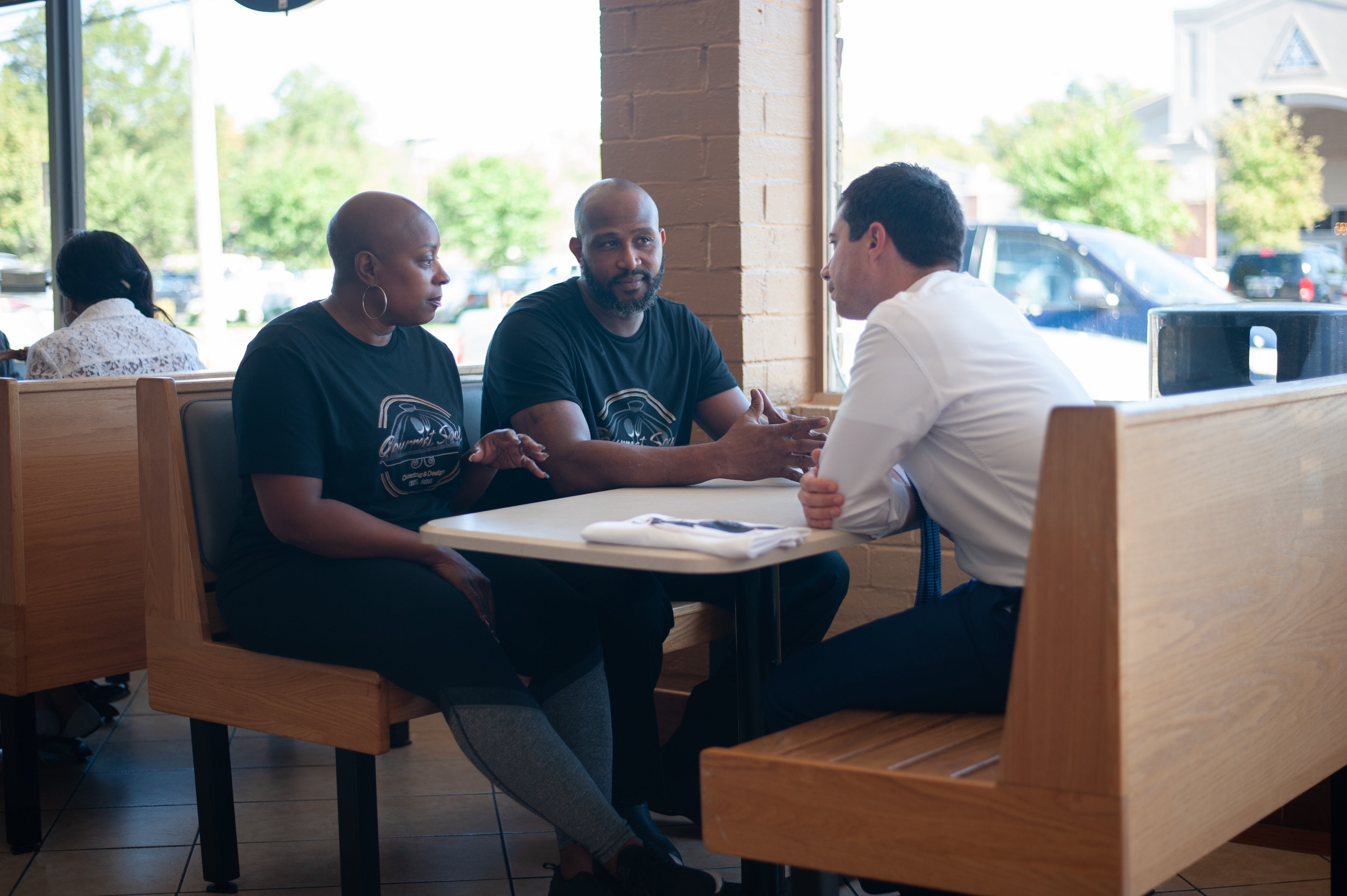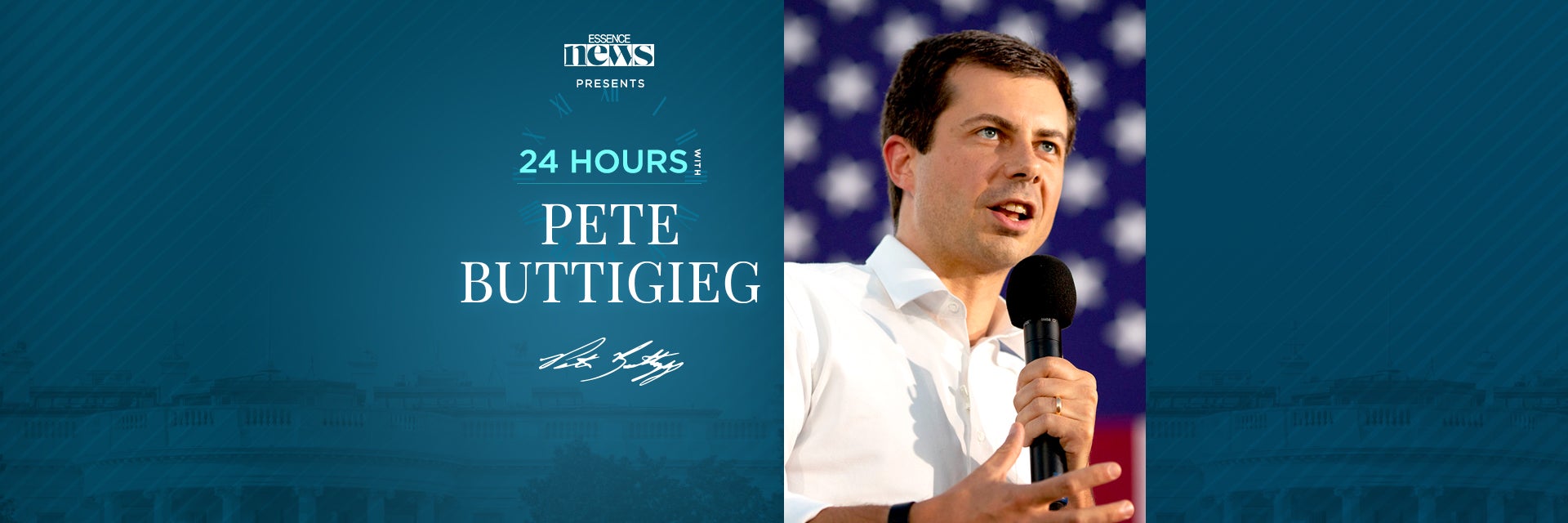Among a small gathering of HBCU students, Pete Buttigieg blends seamlessly into the crowd. It is the first stop on ESSENCE’s 24-hour jaunt with the South Bend, Indiana mayor and he’s made his way to Benedict college for neighboring Allen University’s homecoming tailgate. There’s an apparent stiffness to his body, but his approach is thoughtful, deliberate even. He looks at each person in the eye, shakes their hand and says “hello,” before sincerely thanking them for their presence.
Of the growing roster of presidential candidates, Buttigieg is quite evidently the youngest. It shows. Four years my senior, he has a boyish charm that makes it easy for him to get lost in a bevy of game-goers but is still eloquent enough to stand out and draw cheers on a stage discussing criminal justice reform. In interactions with possible constituents, he can be a bit robotic. And yet a clear understanding of who he is and where he stands on policies related to the African American community, helps him win fans in spaces where the overwhelming majority does not look like him.

On the road in South Carolina was not the first time I got to witness up-close the man who is now surging in the Iowa polls. In July he attended the 25th annual ESSENCE Festival in New Orleans where he rolled out his Walker-Lewis plan. At the time he touted it as a way to help bridge the economic divide by investing in Black entrepreneurs.
I noticed then that Buttigieg is purposeful in his approach to creating a campaign that feels inclusive of the Democratic party’s most loyal voting bloc. Just prior to Festival, he rolled out a plan named after highly-regarded abolitionist Frederick Douglas that would help increase the number of successful small businesses in Black communities by 50 percent. It would also rebuild America to a place that doesn’t administer potential based on skin color.
The message was great for the largest gathering of Black women in the country, but the audience at the Ernest N. Morial Convention Center in New Orleans is quite different from those who convened at the Rock Hill City Hall Amphitheatre on a warm, October afternoon in South Carolina.
In a crowd of hundreds, there were maybe a dozen Black men and women who left their living rooms that Saturday to listen to the Midwest Mayor discuss his plans for America. Still, Buttigieg touted economic mobility for Black Americans, a diverse staff that’s reflective of the nation, and a federal government that acknowledges the racist practices of its past.
I asked him about it when we sat down the next day in the same Rock Hill area. Why had he placed Black women, the Black community at the core of so many of his policies? To that, he said, “For reasons related to sexism, racial inequality, and other structural problems — all of which, by the way, came about on purpose. Which means it won’t be taken apart unless we do it on purpose.”

The 37-year-old has a point. But as aware as he is of structural inequity among communities of color, I have to imagine that he’s conscious of the fact that support for his campaign within the Black community is practically non-existent. During a California campaign fundraiser, he reportedly said that the reason he wasn’t doing well among Black South Carolina voters, and Joe Biden was, comes down to familiarity.
Unfortunately, for the mayor, familiarity is hard to come by.
It takes time, real work, and a certain level of credibility to anchor one’s self in a community whose marginalization has birthed a righteous distrust. We require familiarity and relatability. We want to believe that our issues and concerns are being heard. And also, that we’re understood beyond a surface level. Buttigieg, by all intents and purposes, falls short in this department. Culturally, he’s an outsider. During our chat he stumbles (but eventually succeeds) on naming three Midwest rappers, can’t exactly name a favorite Jackson 5 song, and he prefers his cornbread out of a Jiffy box (I didn’t dare to ask about Thanksgiving dressing).

Plainly said, he’s not the first invitation you’d send out for the family cookout. But, there’s a good chance if invited, that he’d be the first to respond, and for sure the first one to show up as you’re still working on setting things out.
From what I’ve witnessed, the man who could potentially be the first openly gay president in our country’s history gets it when it comes to knowing what it takes to bring equity to the Black community. I felt it at the Second Step presidential forum, church service at the AME Zion Regional Conference Worship Service, and during his sit-down, with entrepreneurs throughout the South Carolina trail we traveled on in that 24-hour span.
He tells me during our talk that the federal government created many of the inequalities that we’re living with in the first place and that he wants to fix them. That he has a chance to stand up at a time like this, and that’s what he plans to do as president. And on that note, I believe him. Now, only time will tell if he can convince the Black community, the country, that it’s enough to catapult him into the White House.
